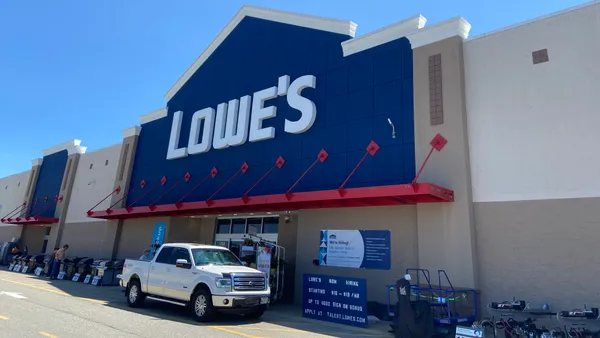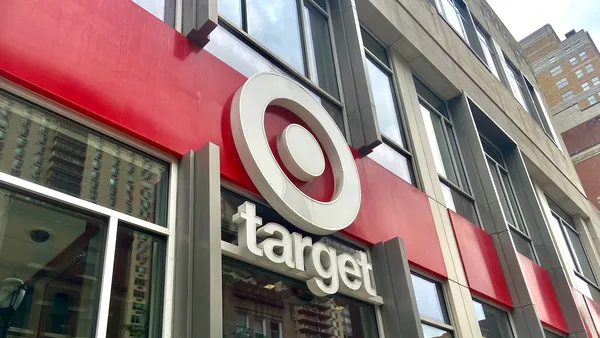Dive Brief:
-
Dick's Sporting Goods on Tuesday announced the launch of VRST, a men's athletics apparel brand exclusive to the retailer, according to a company press release.
-
The new label will be available on VRST.com, dicks.com and will roll out to more than 400 Dick's locations in the coming weeks.
-
VRST ranges in price from $30 to $120 and includes items like hooded sweatshirts, commuter pants, joggers and shorts.
Dive Insight:
Dick's Sporting Goods is moving further into the competitive athleisure market, but this time around it's focused on the men's category.
In an earnings call with analysts last week, Chief Financial Officer Lee Belitsky described the new line as "closer to Lululemon" and went on to describe the clothing as "lifestyle apparel that you can wear to work, you can travel in ... you could work out in it if you choose to."
The brand is aligned to recent consumer needs, as the pandemic has pushed many office employees to work from home — and reaching for comfortable clothes. As gyms closed their doors, there has also been a rise in at-home workouts, which has resulted in a gain for retailers specializing in outdoor products that support running, hiking and bicycling.
Dick's recently posted a blockbuster year, including a 9.9% increase in comparable sales for fiscal year 2020 along with digital sales that doubled. The company pointed to its vertical brands as a factor in that success by bringing in more than $1.3 billion in sales and said that Calia, its private label activewear line for women, is its second-largest women's athletic apparel brand behind Nike.
"With the continued intersection of casual wear and athletic apparel, we saw a white space opportunity for a men's line," Nina Barjesteh, Dick's senior vice president of product development, said in a statement. "The VRST line leverages our expertise in athletic apparel, technology and the in-house design capabilities we have been building over several years.
While Dick's continues to sell a variety of brands, athletics retailers are pushing more into the direct-to-consumer space. Last week, Adidas laid out a new four-year strategy that aims for DTC to make up 50% of the company's sales by 2025. Additionally, Nike last year started closing some of its wholesale accounts as it furthers its Nike Direct strategy, which includes enhancing digital offerings and paring down its partners in favor of DTC channels.













